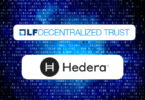Today digital identity group, The ID2020 Alliance, announced its latest partner, the National Cybersecurity Center (NCC).
The ID2020 Alliance is backed by big names such as Accenture, Microsoft, the Rockefeller Foundation and Mastercard as well non profits including Mercy Corps, Kiva and Gavi, the Vaccines Alliance. Its manifesto acknowledges that over a billion people can’t prove their identity and, as a result, are unable to access basic services.
ID2020 Announcement:
Note: we are experimenting with some articles, publishing the announcement, sometimes prefixed with a brief introduction.
Today, ID2020 announced its newest Alliance partner, the National Cybersecurity Center (NCC).
ID2020 was founded in 2016 to ensure that all people have access to better forms of digital ID by bringing together nonprofits, corporations, and governments to promote the adoption and implementation of user-managed, privacy-protecting, portable digital identity solutions.
Founded in 2016 by the former Governor of Colorado, John Hickenlooper, the National Cybersecurity Center (NCC) is a Colorado Springs-based nonprofit committed to promoting cyber innovation and awareness.
“We are delighted to welcome the National Cybersecurity Center to the ID2020 Alliance,” said ID2020 Executive Director, Dakota Gruener. “Because technology is evolving so quickly, many of the transactions that once took place in person and required traditional forms of ID are today being conducted digitally. Cyber threats, whether criminal or state-state sponsored, underscore the urgency and importance of ID2020 and the NCC’s collective efforts. We look forward to sharing our expertise and learning from their world-class team of cybersecurity experts.”
With a mission to “secure the world”, the NCC has four main initiatives:
- Secure the Vote seeks to increase voter confidence in the U.S. on the accuracy of vote-counting, and to generate greater awareness of possible solutions to critical gaps in the voting infrastructure. Secure the Vote supports jurisdictions’ efforts to offer a secure, auditable mobile voting option for overseas voters through coordinating, and evaluating pilots across the country.
- Secure Smart Cities: Hyper-connectivity amongst smart devices and urbanization drive the need for cities to become more efficient in their operations as they continue to grow, but the concern of security impedes the overall advancement of several cities with “Smart” agendas.
- The NCC’s Cyber Education Program provides cybersecurity leadership, and one of the main pillars is K-12 education. As our nation addresses the critical gap in skilled cybersecurity talent, NCC addresses the importance of cyber education through programs and partnerships that invite students to participate in an ecosystem that encourages them to learn, explore, and build their skills.
- The NCC’s K-12 initiative, the National Cybersecurity Center Student Alliance (NCCSA) offers opportunities for middle and high school students to improve technical literacy through fun, interactive, and challenging camps, field trips, workshops, and events. NCC encourages STEM education for all students, with special attention towards creating inviting and collaborative opportunities for girls and other underrepresented groups in the cyber ecosystem.
- The Space Information Sharing and Analysis Center (ISAC), a separate nonprofit organization, has the mission to facilitate collaboration across the global space industry to enhance our ability to prepare for and respond to vulnerabilities, incidents, and threats; to disseminate timely and actionable information among member entities; and to serve as the primary communications channel for the sector with respect to this information.
“Digital citizenship is an increasingly critical space as more of our identity is online,” said NCC Director of Business and Government Initiatives, Forrest Senti. “The NCC’s work to secure cyberspace intersects directly with ID2020’s work to protect individuals’ online identity and to ensure that policies created around that protection are fair and equitable and ensure the utmost security for citizens around the world. We look forward to working with ID2020 to pioneer new ways to secure the future of identity.”
The future of digital ID is at an important crossroads. As policymakers in the US and around the world struggle to confront the social and economic consequences of the COVID-19 pandemic, some are considering plans for digital identity-based health credentials to facilitate a return to work, school, and other social activities. The risks to privacy and security are high, as are the rewards of doing it right. ID2020 is working urgently with its partners and other stakeholders to ensure that privacy and data security are built into the technical architecture of these systems and that the appropriate legislative and regulatory are developed to guide their implementation.
ID2020 and the National Cybersecurity Center share a common mission to secure our individual and collective privacy and security. We welcome them to the Alliance and look forward to working collaboratively to advance our shared goals.






